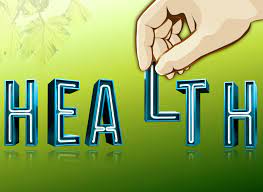Why Mentel Health Is Important for Teenagers?
Mental health is an important topic for teenagers. They are going through so many changes in their bodies and their lives and it can be hard to cope with everything. That’s why it’s important to have someone to talk to about your mental health.
At Mentel, we believe that every teenager deserves access to mental health services. We offer a variety of services such as counseling, therapy, and medication management to help our clients cope with their mental health issues. We also provide education on mental health topics so that our clients can learn more about their condition and how to manage it. If you or someone you know is struggling with their mental health, we urge you to reach out to us. We are here to help!
What Is Mental Health?
Mental health is a state of well-being in which an individual realizes his or her own abilities, can cope with the normal stresses of life, can work productively and fruitfully, and is able to make a contribution to his or her community.
Good mental health isn’t just the absence of mental health problems. Mental health includes our emotional, psychological, and social well-being. It affects how we think, feel, and act. It also helps determine how we handle stress, relate to others, and make choices.
The Different Types Of Mental Health Disorders
Mental health disorders come in many different shapes and sizes. Some of the more common types of disorders include:
Anxiety Disorders: Anxiety disorders are characterized by excessive worry, tension, and fear. Common types of anxiety disorders include generalized anxiety disorder, social anxiety disorder, and panic disorder.
Depression: Depression is a serious mental health condition that is characterized by feelings of sadness, hopelessness, and worthlessness. People with depression may experience changes in sleep or appetite, fatigue, difficulty concentrating, and thoughts of suicide.
Eating Disorders: Eating disorders are characterized by abnormal eating habits and an intense fear of gaining weight. Common types of eating disorders include anorexia nervosa and bulimia nervosa.
Obsessive-Compulsive Disorder (OCD): OCD is a mental health condition that is characterized by intrusive thoughts (obsessions) and repetitive behaviors (compulsions). People with OCD often feel the need to wash their hands repeatedly, check things over and over again, or hoard objects.
The Causes Of Mental Health Disorders
There are many different causes of mental health disorders. Some can be traced to a specific event or situation, while others may have no clear cause.
Mental health disorders can be caused by:
-Genetic factors: Mental health disorders can run in families, meaning that certain genes may make people more vulnerable to developing a disorder.
-Biological factors: Certain brain chemicals play a role in mood and emotion. An imbalance of these chemicals can lead to mental health problems.
-Life experiences: Traumatic or stressful life events can trigger mental health problems. This could include things like abuse, neglect, the death of a loved one, or financial troubles.
The Symptoms Of Mental Health Disorders
Mental health disorders are more common in teenagers than most people realize. In fact, one in five adolescents will experience a mental health disorder at some point during their teenage years.
The most common symptoms of mental health disorders in teenagers include:
-Irritability or moodiness
-Withdrawal from friends and activities
-Loss of interest in hobbies or things they used to enjoy
-Fatigue or low energy levels
-Poor concentration or attention span
-Changes in eating habits (weight loss or gain)
-Sleep disturbances (insomnia or excessive sleeping)
-Excessive worry or anxiety
– Feelings of sadness, hopelessness, or worthlessness
The Consequences Of Mental Health Disorders
Mental health disorders can have a number of negative consequences for teenagers. These can include academic problems, social isolation, and substance abuse. Additionally, mental health disorders can lead to suicide. Each year, suicide is the second leading cause of death for teenagers in the United States.
How To Get Help For Mental Health Disorders?
It’s important to get help for mental health disorders because, left untreated, they can cause serious problems. According to the National Alliance on Mental Illness, untreated mental illness can lead to:
• poorer physical health
• lower grades and increased absences from school
• substance abuse
• self-harm
• suicide
If you or someone you know is struggling with a mental health disorder, there are resources available to help. Here are some places to start:
1. Talk to your doctor: Your primary care physician can screen for mental health disorders and make referrals for treatment.
2. Contact a mental health professional: A therapist, counselor, or psychiatrist can provide diagnosis and treatment for mental health disorders. Many insurance plans cover these services. You can find providers in your area through the American Psychological Association or the National Board for Certified Counselors.
Conclusion
Mental health is important for teenagers for a variety of reasons. It helps them cope with stress, develop positive relationships, and understand their emotions. When teenagers have good mental health, they are more likely to do well in school, have successful careers, and be happy overall. If you are a teenager struggling with mental health issues, know that you are not alone and there is help available. Seek out a therapist or counselor who can help you manage your symptoms and start living a happier life.

Marin Hùng, a passionate advocate for holistic well-being, is the driving force behind our health-focused platform. With a deep-rooted commitment to promoting a balanced and vibrant lifestyle, Marin brings a wealth of knowledge and experience to our health community. As a dedicated writer and wellness enthusiast, Marin’s insightful articles and expertise are at the heart of our mission to inspire healthier living.














Post Comment